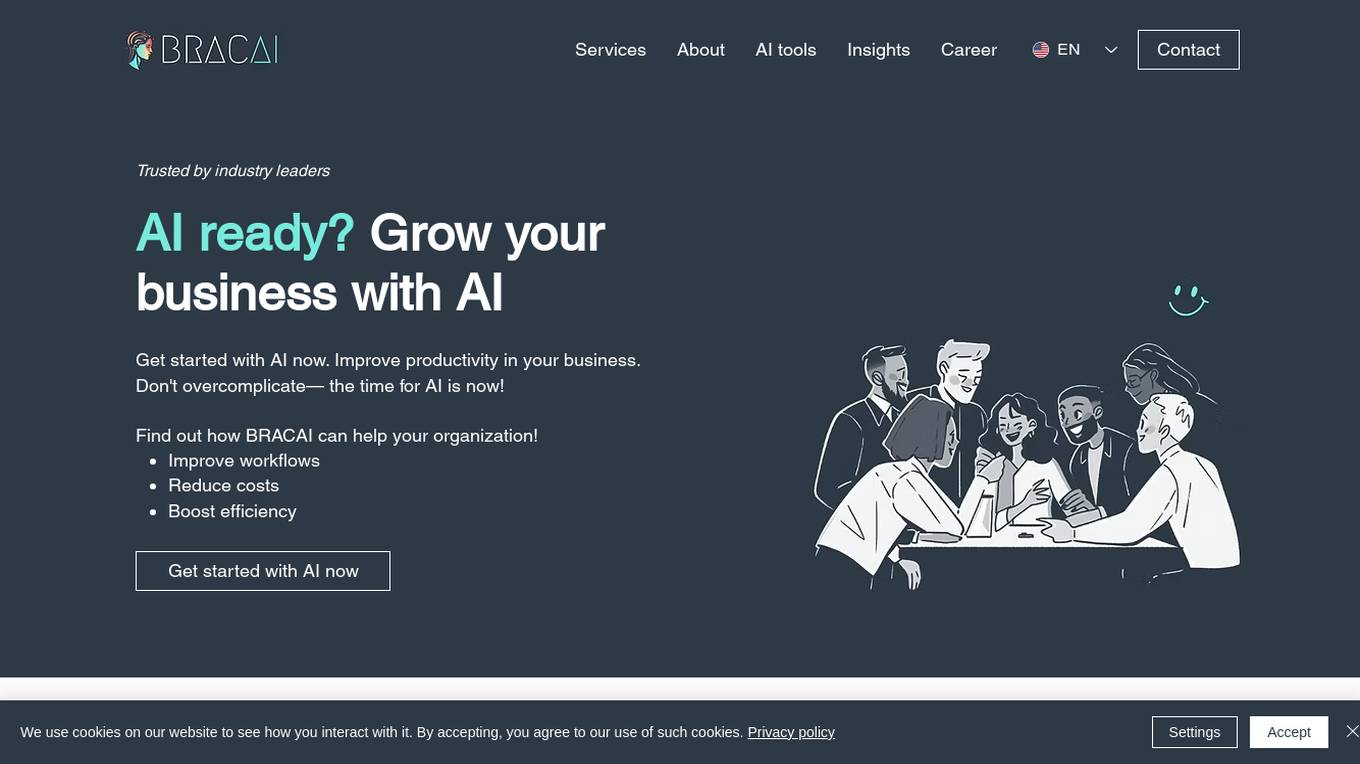Best AI tools for< Braai Meat >
1 - AI tool Sites

BRACAI AI Consulting Services
BRACAI AI Consulting Services is a platform that offers AI consulting services to businesses looking to leverage artificial intelligence to improve productivity, reduce costs, and boost efficiency. The platform helps companies identify AI use cases, develop AI solutions, and provide training to ensure successful AI transformation. With a focus on simplifying AI for businesses, BRACAI aims to help organizations navigate the path to AI adoption and implementation.
site
: 22.2k
0 - Open Source AI Tools
No tools available
